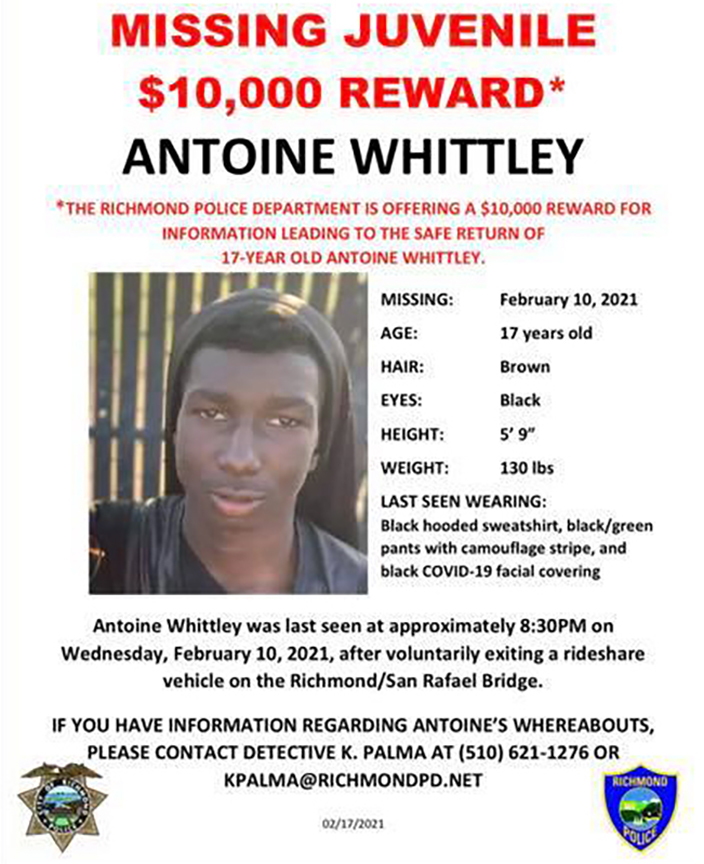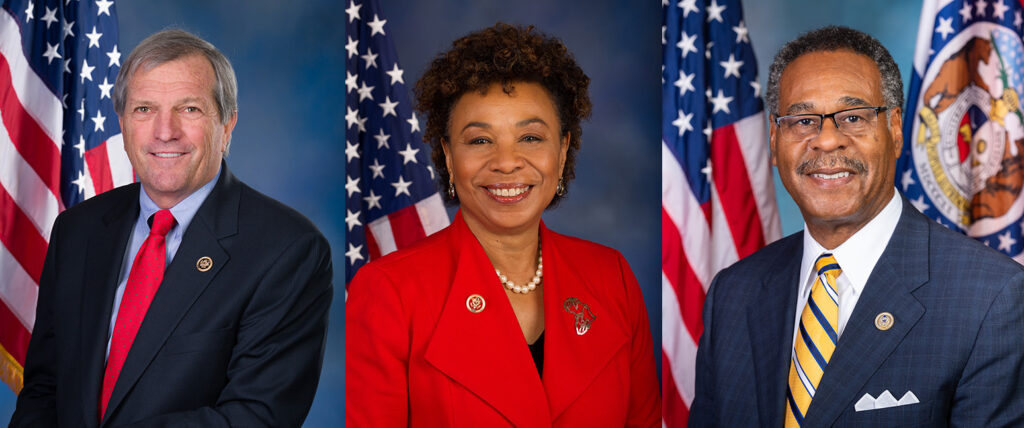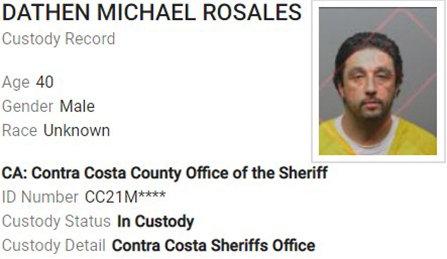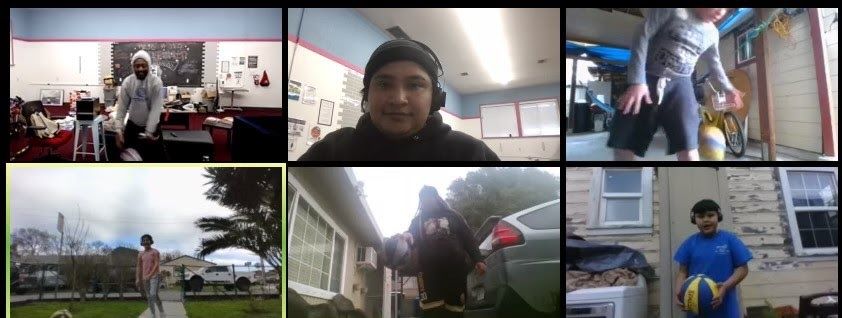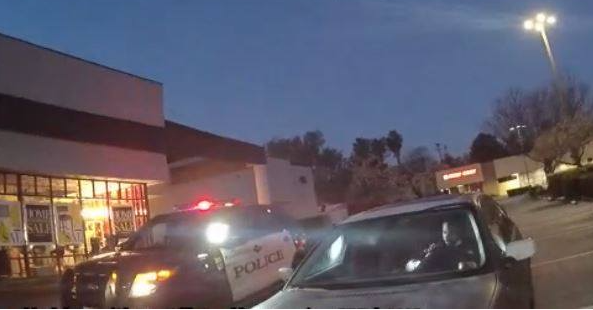
Pleasant Hill Police Officers pull over the suspects in the car as they were fleeing the T-Mobile store. Photo: PHPD
Second Pleasant Hill cell phone store robbed this month
By Pleasant Hill Police Department
Earlier this week, our graveyard team was dispatched to an alarm at T-Mobile (552 Contra Costa Blvd). Several officers went directly to the business and found the back door had been cut off and the business burglarized. Another officer stopped a suspicious vehicle leaving the area of the business and it turned out the occupants of the car were the burglars!
This is the second cell phone store in Pleasant Hill to be robbed, this month. Another was hit on Sunday morning, Feb. 7 and the suspects were arrested. (See related article)
That’s team work! We work together as a unit to resolve conflicts, solve crimes, apprehend suspects, and manage dangerous situations. #teamwork
Allen Payton contributed to this report.
Read More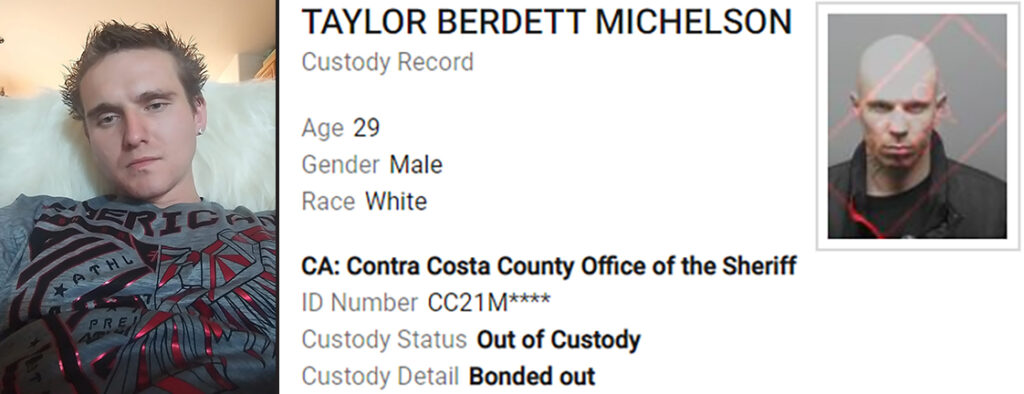
Suspects Kevin Herman (left) from his Facebook page posted on Oct. 4, 2019 and Taylor Michelson (right) by CCCSheriff. Note: No arrest photo of Herman was available.
By Brentwood Police Department
We couldn’t let this go by without sharing it with you.
While most were sleeping soundly early Friday morning, Feb. 12, 2021 our graveyard officers were busy at work. While patrolling our city they located a stolen vehicle driving through town.
The vehicle eventually pulled into a residential driveway, but our officers weren’t too keen on letting the occupants go any further.
The driver, 30-year-old Kevin Herman (Pleasant Hill) and passenger, 29-year-old Taylor Michelson (Oakley), were safely taken into custody. During the arrest, officers found a concealed loaded pistol, a collapsible baton, and property related to identity theft inside the vehicle.
Michelson had an outstanding felony warrant, and both males were given a ride to county jail on several charges including possession of a stolen vehicle and firearm related charges. According to LocalCrimeNews.com he has a history of arrests dating back to 2012 for such things as possession of drug paraphernalia, identity theft, receiving stolen property – motor vehicle and forgery.
Also according to the same website, Herman has a history of arrests by multiple agencies in Contra Costa County and the Bay Area dating back to 2013 for such things as drug possession, residential robbery, burglary, shoplifting and petty theft.
Criminals never stop ……. and neither do we!
Allen Payton contributed to this report.
Read MoreTeachers, grocery workers and other frontline essential workers who live in Contra Costa County can now sign up to receive safe, effective COVID-19 vaccine at no cost to them.
Contra Costa Health Services (CCHS) today updated its eligibility policy for COVID-19 vaccine to extend vaccination eligibility to residents who work in the education and childcare sector, food and agriculture workers, and emergency services workers as defined by Phase 1B of California’s vaccination plan.
“We are committed to protecting all of our educators by ensuring they can access the COVID-19 vaccine,” said Diane Burgis, chair of the Contra Costa Board of Supervisors. “It is critical that we prioritize the health and well-being of all the essential workers who have cared for us and our families throughout the pandemic.”
Residents in these groups, as well as county residents who are 65 years and older who have not yet been vaccinated, can sign up to access state and federal sites through MyTurn (myturn.ca.gov) or by calling 1-833-422-4255.
Essential workers and residents 65 years and older can also request immunization appointments through CCHS and join the county waiting list for COVID-19 vaccine. However, due to a temporary reduction in vaccine supply from the state, all appointments at county sites are filled through the next two weeks at least.
People who need to cancel an existing appointment or who received a first dose of vaccine through CCHS and need to make a second-dose appointment should call 1-833-829-2626.
When more appointments do become available, CCHS will continue to prioritize county residents who are 65 or older as well as eligible essential workers, particularly those who live or work in the local communities most heavily affected by the pandemic.
CCHS continues to move forward with a workplace-based outreach effort to immunize essential workers in high-risk jobs in the county’s hardest-hit communities, including food and agriculture workers. Workers at sites selected for the program will be contacted by their employers.
For more information about Contra Costa’s response to the COVID-19 pandemic including information about COVID-19 vaccine eligibility and appointments, visit cchealth.org/coronavirus.
Read More
Multiple agencies assist, $10,000 reward offered
By Richmond Police Department
On Wednesday, February 10th just prior to 8:30 pm, 17-year-old Antoine Whittley was visiting a friend’s house in the 300 block of Marina Way South. He obtained a ride share to return home in the Point Richmond area. Approximately ten minutes after being picked up by the ride share driver, our investigation revealed that Antoine was last seen on the Richmond/San Rafael Bridge. He has not been seen since then.
Antoine is 5’9” and approximately 130 pounds; he was last seen wearing a black Covid-19 mask, hooded Reebok sweatshirt and black/green pants with an orange/green/gray camouflage stripe on both legs. He was carrying a backpack with personal belongings inside of it.
The City of Richmond Police Department is committed to investigating incidents that occur in our city. We ask that any person, who may have any information related to this crime please contact Detective Kris Palma at (510) 621-1276, email him at kpalma@richmondpd.net or they can contact Richmond’s anonymous tip line at (510) 307-T1PS (8177).
Comments have circulated online indicating that Antoine returned home. As of 11:00 am on Sunday, Feb. 15, 2021, Antoine has not been located and RPD is actively seeking information from anyone who may know his whereabouts.
Comments have also been critical of the rideshare driver and his possible involvement with Antoine’s disappearance. Detectives have interviewed the driver and are confident the driver did not have anything to do with his disappearance. Our investigation also shows that Antoine voluntarily left the rideshare vehicle.
The Richmond Police Marine Patrol Unit has been actively searching the vicinity of the Richmond-San Rafael Bridge for missing 17-year-old Antione Whittley. Allied agencies, which include the Richmond Fire Department, San Rafael Police Department, San Rafael Fire Department, Contra Costa Sheriff’s Office, Marin County Sheriff’s Office, Solano County Sheriff’s Office, CHP Air Support, and the US Coast Guard Air Support have joined in on the search. In a coordinated effort led by Richmond Police Sergeant Joe England, searches of all waterways and shorelines are being conducted. The Solano County Sheriff’s Office has utilized their underwater sonar capabilities in order to search underneath the water. The US Coast Guard and CHP Air Support have been conducting daily fly overs in this vicinity. Richmond Police Officers have also been walking the shorelines and utilizing UAS (Drone) in areas that are hard to get by vessel.
 The focus of the search is from the Angel Island area in the SF Bay to the area of East Brothers Island, in the San Pablo Bay. This area is vastly large and numerous miles of shoreline, long wharfs, islands, obstacles in the water, and the Richmond-San Rafael Bridge are being searched on a daily basis. Our goal is to continue daily searches and bring Antione home.
The focus of the search is from the Angel Island area in the SF Bay to the area of East Brothers Island, in the San Pablo Bay. This area is vastly large and numerous miles of shoreline, long wharfs, islands, obstacles in the water, and the Richmond-San Rafael Bridge are being searched on a daily basis. Our goal is to continue daily searches and bring Antione home.
It has not been confirmed if Antione actually went into the water, but Richmond Police Marine Unit want to ensure all areas in the vicinity of the Richmond-San Rafael Bridge have and will be checked. We encourage any boaters in this vicinity to be observant and report any activity to the Richmond Police Department or the US Coast Guard.
$10,000 Reward
As the search continues, we are offering a $10,000 reward for information regarding Antoine Whittley’s whereabouts. If you have information, we encourage you to call Detective K. Palma at (510)-621-1276 or email kpalma@richmondpd.net. Thanks for your help in finding Antoine!
Read More
By Alexandra Rubin, Director of Communications
Walnut Creek-based Cancer Support Community San Francisco Bay Area (CSC) is honored to be awarded a Community Partnership Seed Grant from the Stanford Cancer Institute.
CSC staff, along with CSC board member and Stanford physician, Anjali Sibley, MD, MPH, will conduct a qualitative needs assessment identifying the psychosocial needs of Black cancer patients and their families and barriers to accessing services.
“We are so grateful to the Stanford Cancer Institute for their generosity in making this important work possible,” says Dr. Sibley.
Rob Tufel, MSW, MPH, Chief Executive Officer of Cancer Support Community said, “This project is just part of CSC’s efforts to better meet the needs of cancer patients in underserved communities. Racial health disparities have long been known, but it’s time for everyone working in the cancer community to redouble our efforts to reduce cancer inequities for people of color facing cancer.”
CSC also opened a satellite center in Eastern Contra Costa County last year as part of their ongoing efforts to provide support directly to cancer patients and their families in underserved communities.
The ultimate goal of this project is to use the results to develop programs that better meet the needs of Black cancer patients and their families. This information will also be shared with the community and the CSC network of 39 affiliates across the United States as part of CSC’s efforts to address racial inequities in supportive cancer care.
About Cancer Support Community San Francisco Bay Area
Cancer Support Community provides comprehensive, integrative care – including counseling, support groups, nutrition training, exercise classes, emergency financial assistance, and patient education programs – for people with cancer, their caregivers, and their families. Our evidence-based services enable cancer patients to partner with their medical teams to manage their treatment and recovery most effectively, increase their chances for survival, reduce their chances of recurrence, and provide for the highest possible quality of life. All CSC services are always provided free of charge and are being offered virtually during the pandemic. With services provided at our Walnut Creek center, in local medical centers throughout the Bay Area, and now in Antioch, we serve more than 2,200 people annually. Visit www.cancersupport.net for more information.
Read MoreCongressman Mark DeSaulnier (D, CA-11) will host a virtual Conversation on Race town hall to discuss racial justice in America on Friday, February 19th at 4:00 p.m. with Congresswoman Barbara Lee (D, CA-13) and special guest Congressman Emanuel Cleaver (D, MO-05). Internationally recognized expert on civil rights and author, John Powell will also participate in the event. The town hall will be held live on Zoom and will also be viewable through Congressman DeSaulnier’s Facebook page.
The event is the latest in the Conversation on Race series created by DeSaulnier and Lee in order to facilitate more understanding, healing, and progress to help us move forward as a nation. Cleaver is the former Chair of the Congressional Black Caucus and the first African American Mayor of Kansas City.
This will be DeSaulnier’s 124th town hall and mobile district office hour since coming to Congress. Contra Costa residents will have an opportunity to submit questions before the event and live during the town hall.
Conversation on Race Zoom Town Hall
Friday, February 19, 2021
4:00 p.m. to 5:00 p.m. PT
To RSVP, submit a question, or request special accommodations, visit https://desaulnier.house.gov/town-hall-rsvp or call (925) 933-2660.
This event is open to the public and press.
Read More
Good Samaritan took woman to the hospital
By Jimmy Lee, Director of Public Affairs, Office of the Contra Costa County Sheriff
 On Thursday, February 11, 2021, the Contra Costa County Office of the Sheriff was notified about an incident that was initially handled by the California Highway Patrol.
On Thursday, February 11, 2021, the Contra Costa County Office of the Sheriff was notified about an incident that was initially handled by the California Highway Patrol.
Late that evening, the CHP conducted a vehicle stop on eastbound Highway 4. The car took the Center Avenue exit in the City of Martinez.
The CHP officer contacted the driver and noticed there was blood inside the car. There was also a baby in the vehicle.
 The driver apparently earlier assaulted the child’s mother who fled the car on the side of Franklin Canyon Road. A good Samaritan took her to the hospital.
The driver apparently earlier assaulted the child’s mother who fled the car on the side of Franklin Canyon Road. A good Samaritan took her to the hospital.
The driver is identified as 40-year-old Dathen Michael Rosales of San Jose. He was later booked into the Martinez Detention Facility on the following charges: attempted murder, kidnapping, making criminal threats, inflicting corporal injury and child endangerment. He is being held in lieu of $760,000 bail.
Anyone with any information on this incident is asked to contact the Sheriff’s Office Investigation Division at (925) 313-2600 or through Sheriff’s Office dispatch at (925) 646-2441. For any tips, email: tips@so.cccounty.us or call (866) 846-3592 to leave an anonymous voice message.
Read More
Also upgrades LRBs’ to Aa2 and POBs to Aa3; assigned Aa2 to 2021 LRBs; outlook is stable
By Susan Shiu, Contra Costa County Office of Communications & Media
 On Tuesday, February 16, 2021, Moody’s Investors Service upgraded the Issuer Rating, an indicator of general creditworthiness, of Contra Costa County from “Aa2” to “Aa1”. In its press release, Moody’s cites the County’s “…strong and sustained financial position supported by robust reserves and liquidity.” On Moody’s credit scale, “Aa1” is just one notch below the coveted “Aaa” credit rating.
On Tuesday, February 16, 2021, Moody’s Investors Service upgraded the Issuer Rating, an indicator of general creditworthiness, of Contra Costa County from “Aa2” to “Aa1”. In its press release, Moody’s cites the County’s “…strong and sustained financial position supported by robust reserves and liquidity.” On Moody’s credit scale, “Aa1” is just one notch below the coveted “Aaa” credit rating.
The rating upgrade is especially complementary of the County’s efforts since Moody’s has placed the U.S. Local Government sector, as a whole, on negative outlook due to the coronavirus pandemic. The upgrade comes in advance of the County’s planned issuance of lease revenue bonds for the construction of an aviation terminal, fire stations, and a new office complex. In addition, the County will be refunding existing bonds for an estimated net present value savings of $7.8 million, or 16.2%.
Board of Supervisors Chair Diane Burgis (District 3) commented that “The upgrade from Moody’s is a testament to the strong financial management practices that have become a tradition in Contra Costa County.”
County Administrator Monica Nino stated that “Contra Costa County has been a leader throughout the State in prudent financial and budget management, and we plan to continue that into the future.”
Complete Press Release
New York, February 16, 2021 — Moody’s Investors Service has upgraded Contra Costa County’s (CA) issuer rating to Aa1 from Aa2, lease revenue bond rating to Aa2 from Aa3 and pension obligation bond rating to Aa3 from A1. The amount of debt affected is $232.4 million and $85.7 million, respectively. We also assigned a Aa2 rating to the Contra Costa County Public Financing Authority’s $62.4 million Lease Revenue Bonds (Capital Projects and Refunding) 2021 Series A (Capital Projects) and $37.2 million 2021 Series B (Refunding). The outlook is stable.
RATINGS RATIONALE
The upgrade to Aa1 incorporates the county’s strong and sustained financial position supported by robust reserves and liquidity. The Aa1 rating incorporates the county’s large and diverse tax base poised for ongoing solid growth, residents’ favorable income levels and moderate long-term liabilities. The rating also factors the recent increased general fund subsidy for the county’s hospital enterprise because of higher operating costs unrelated to the pandemic. The subsidy will remain manageable when compared to the county’s operating revenue. In addition, the county will benefit from a recently approved sales tax measure that expires in March 2041. These funds can be used to support general operations, providing additional financial flexibility. The county’s strong governance, as demonstrated by management’s prudent fiscal practices and adopted policies, is also factored into the rating.
The Aa2 ratings on the county’s lease revenue bonds are one notch lower than the county’s Aa1 issuer rating, reflecting both the absence of California GO (General Obligation) bond security features, which provide uplift to the GO rating, and the weaker legal structure of standard abatement leases, despite the “more essential” nature of the pledged asset, which is the Contra Costa Regional Medical Center.
The legal provisions for the Lease Revenue Bonds, 2021 Series A and 2021 Series B include that the city will provide rental interruption insurance for 24 months, title insurance, and will not require a debt service reserve fund, which is a negative credit factor. This negative credit factor is mitigated by the county having earthquake insurance that covers the pledged asset, a protective feature that is rare for California abatement leases. The county is not legally obligated to have earthquake insurance, however management expects to renew its policy when it expires next month.
The Aa3 rating on the county’s pension obligations bonds is two notches lower than the county’s issuer rating, reflecting the lack of strong legal features of California GO Bonds. The notching also reflects the relatively poor performance of POBs in Chapter 9 bankruptcies compared to other types of municipal obligations. The POBs are unsecured debt paid by general operating revenues.
RATING OUTLOOK
The stable outlook reflects our expectation that the county will maintain a strong financial position supported by management’s prudent fiscal practices. In addition, we expect that the county will continue to navigate through the economic, operational and financial challenges caused by the coronavirus without materially impacting its long-term credit quality.
FACTORS THAT COULD LEAD TO AN UPGRADE OF THE RATINGS
– Improved income and wealth levels
– Material reduction in long-term liabilities and fixed costs
FACTORS THAT COULD LEAD TO A DOWNGRADE OF THE RATINGS
– Sizeable reduction in reserves and liquidity
– Material increase in long-term liabilities and fixed costs
LEGAL SECURITY
The issuer rating is equivalent to what would be the county’s general obligation bond rating. In California, GO bonds are secured by the levy of ad valorem taxes, unlimited as to rate or amount, upon all taxable property within the county.
The lease revenue bonds are secured by lease payments made by the county for use and occupancy of various leased assets which we view “more essential”. Lease rental payments are payable from any source of legally available funds of the county.
The county’s obligation to make all POB payments of interest and principal are imposed by law and are absolute and unconditional. The POBs are payable from any source of legally available funds of the county, including the county’s general fund.
USE OF PROCEEDS 2021
Series A bonds will finance improvements at the county’s Buchanan Field Airport, the construction of two fire stations and a new county office building. 2021 Series B will refund outstanding lease revenue bonds for savings and there is no extension in maturity.
PROFILE
Contra Costa County is located in the eastern portion of the San Francisco Bay Area, just east of Berkeley and Oakland in northern California. The county seat of Martinez is approximately 24 miles northeast of downtown San Francisco. The county has a population of 1.1 million and the largest industry sectors that drive the local economy are health services, retail trade, and professional/scientific/technical services.
METHODOLOGY
The principal methodology used in the issuer rating was US Local Government General Obligation Debt published in January 2021 and available at https://www.moodys.com/researchdocumentcontentpage.aspx? docid=PBM_1260094. The principal methodology used in the lease and pension obligation bond ratings was Lease, Appropriation, Moral Obligation and Comparable Debt of US State and Local Governments published in January 2021 and available at https://www.moodys.com/researchdocumentcontentpage.aspx? docid=PBM_1260202. Alternatively, please see the Rating Methodologies page on www.moodys.com for a copy of these methodologies.
REGULATORY DISCLOSURES
For further specification of Moody’s key rating assumptions and sensitivity analysis, see the sections Methodology Assumptions and Sensitivity to Assumptions in the disclosure form. Moody’s Rating Symbols and Definitions can be found at: https://www.moodys.com/researchdocumentcontentpage.aspx? docid=PBC_79004.
For ratings issued on a program, series, category/class of debt or security this announcement provides certain regulatory disclosures in relation to each rating of a subsequently issued bond or note of the same series, category/class of debt, security or pursuant to a program for which the ratings are derived exclusively from existing ratings in accordance with Moody’s rating practices. For ratings issued on a support provider, this announcement provides certain regulatory disclosures in relation to the credit rating action on the support provider and in relation to each particular credit rating action for securities that derive their credit ratings from the support provider’s credit rating. For provisional ratings, this announcement provides certain regulatory disclosures in relation to the provisional rating assigned, and in relation to a definitive rating that may be assigned subsequent to the final issuance of the debt, in each case where the transaction structure and terms have not changed prior to the assignment of the definitive rating in a manner that would have affected the rating. For further information please see the ratings tab on the issuer/entity page for the respective issuer on www.moodys.com.
Regulatory disclosures contained in this press release apply to the credit rating and, if applicable, the related rating outlook or rating review.
Moody’s general principles for assessing environmental, social and governance (ESG) risks in our credit analysis can be found at https://www.moodys.com/researchdocumentcontentpage.aspx?docid=PBC_1243406.
Please see www.moodys.com for any updates on changes to the lead rating analyst and to the Moody’s legal entity that has issued the rating.
Please see the ratings tab on the issuer/entity page on www.moodys.com for additional regulatory disclosures for each credit rating.
Read MoreSeeks to improve distance learning by launching “Program in a Box” for youth.
This year, Boys & Girls Clubs of Contra Costa, the community’s leading children’s nonprofit, launched their “Program in a Box” service for youth in Contra Costa County.
“Parents have been expressing concerns about the negative impact of distance learning,” said CEO Michael Dunn. “Our solution was to develop a program that requires youth to get hands-on! Our programs have materials delivered weekly to kids’ homes. The kids then complete projects and upload them to a secure website to share with our staff and their friends.”
Boys & Girls Clubs of Contra Costa’s “Program in a Box” is revolutionary. Kids get program materials delivered DIRECTLY to their homes weekly. These program materials allow for our youth to participate in engaging projects covering STEM, Art, Sports and Cooking.
With this program we’ve found creative ways to help support parents and keep kids social and engaged during these unprecedented times.
“I spoke to a parent recently who started crying because her daughter has been struggling with distance learning, and our home delivered program materials provided a much-needed change of pace,” said Keirstan Faulkner, Director of Programs.
Additionally, staff gets on a weekly ZOOM calls with our youth for live engagement and fun. Our
members also have complete access to videos created by Boys & Girls Club staff members to follow along with the materials in the program boxes.
“This pandemic has been challenging, but we are committed to doing whatever it takes to keep our youth engaged and having fun,” said Dunn. “We are confident that this program will be very beneficial for our youth and families in Contra Costa County as we continue to work around distance learning.”
The Boys & Girls Clubs of Contra Costa has been serving Contra Costa kids at their Martinez and El Sobrante clubhouses since 1956. Today they serve thousands of kids with virtual programming, school supplies and food services programs. Before COVID-19, they served over 250 kids in-person each day at their clubhouse in Martinez and at three school sites throughout West Contra Costa.
For more information about the Boys & Girls Clubs of Contra Costa and their online programming, visit www.bgccontracosta.org. They are also looking for support to run these programs during these difficult times. If you can help, please donate at www.bgccontracosta.org/donate.
Read MoreLast night at about 9:19pm, Contra Costa CHP was advised of a solo vehicle crash on Hwy-4 westbound, at the Alhambra Avenue off ramp. Upon emergency personnel and CHP arrival, it was determined that a solo 2007 black Toyota Camry had been driven off the roadway and collided into heavy brush and trees at the Alhambra Avenue off ramp. The adult female passenger was ejected from the Toyota and suffered major injuries and was transported to a local hospital. The driver, a 21-year-old female from San Pablo, was also ejected and suffered fatal injuries and tragically was pronounced deceased by medical personnel on scene. The Contra Costa County Sheriff’s Coroners’ Office will be handling the release of her identity.
It is unknown at this time if alcohol or drugs were a factor in this collision, but it is still under investigation. If anyone witnessed this collision or the events leading up to it and have not spoken yet with CHP, please contact Contra Costa CHP in Martinez, (925) 646-4980.
Read More








